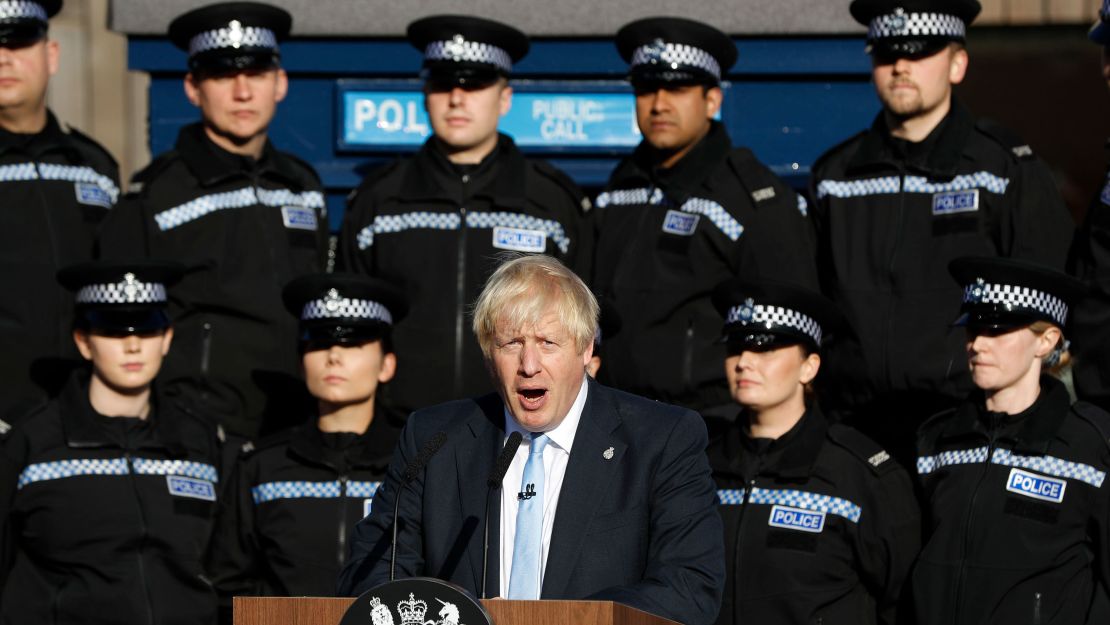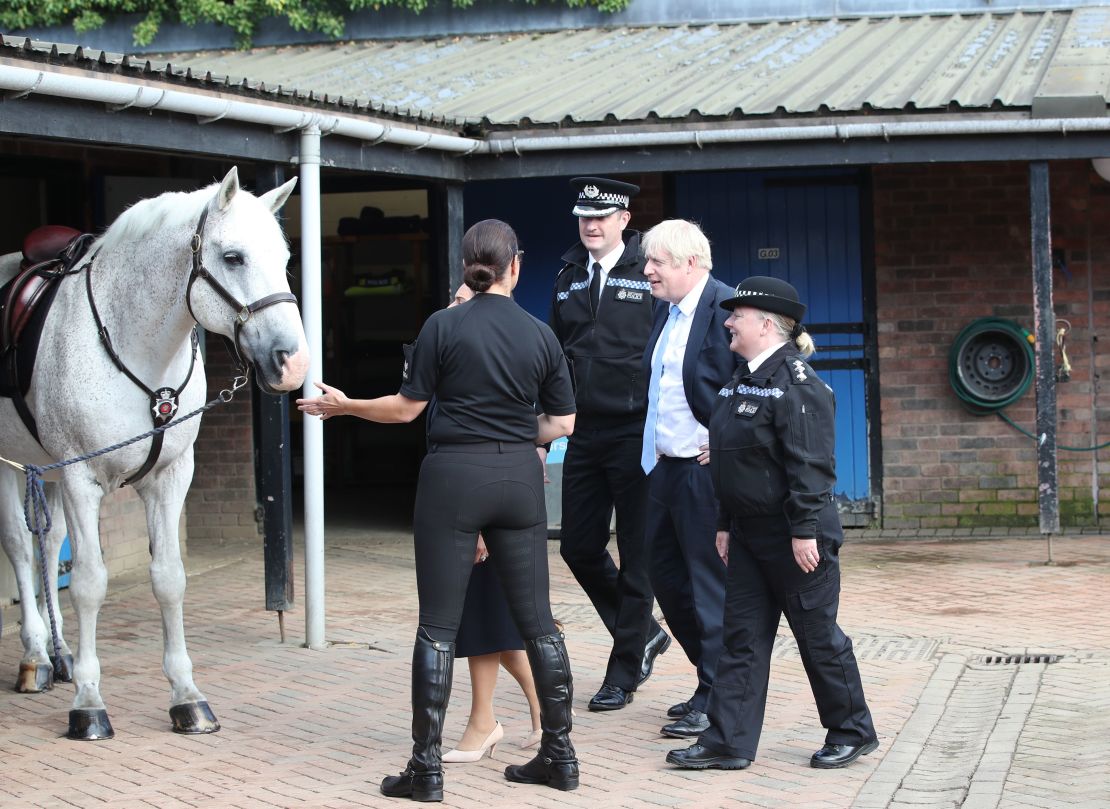Boris Johnson continued his terrible political week with a long, rambling speech in which the UK Prime Minister said he’d rather be “dead in the ditch” than ask Europe to delay Brexit.
That proclamation may return to haunt him, as at the moment it doesn’t look like he’ll have much choice. Parliament passed a bill Thursday that requires him to ask for an extension to Brexit talks if he fails to secure a deal by the end of October – which looks increasingly unlikely.
Asked whether he’d resign to avoid doing that, Johnson refused to give an answer.
As far as political speeches go, the one he gave in Wakefield, in northern England, on Thursday was bizarrely uninspiring – surprising given Johnson’s reputation as an orator.
The PM’s jokes fell flat, and he seemed deflated and unprepared, jumping from topic to topic. Johnson spoke while standing in front of a group of police recruits, an attempt to highlight his government’s promise to invest in policing. At one point, he launched into what seemed to be a spontaneous riff on police rules to the recruits, but became confused and abandoned the topic.
It didn’t help that one of the recruits standing just behind the Prime Minister became visibly ill during his remarks and had to sit down.

Johnson’s speech was likely planned as his first election campaign address. Except there is now no campaign. And no election. Johnson’s call for one was defeated by Parliament on Wednesday, one of three bruising losses he suffered this week.
The awkward speech ended a day filled with more Conservative resignations. He lost the Northern Ireland minister Nick Hurd and a long-time Conservative Caroline Spelman. Both mentioned Brexit as the reason for their departures.
But the one resignation that must have hurt most was that of Jo Johnson, the Prime Minister’s brother. The MP and universities minister said he would step down because he was “torn between family loyalty and the national interest.”
It was the repeated questions from journalists about Jo Johnson’s resignation that finally forced the Prime Minister to admit that Brexit was a divisive topic, “an issue that obviously divides families and divides everybody.”
He knows what he is speaking about – the divisions over Britain’s departure from the EU have not only divided the Johnson brothers, but also the Prime Minister’s party, and deprived him of his parliamentary majority.
Earlier this week, Conservative MP Philip Lee defected to Liberal Democrats right in the middle of Johnson’s first parliamentary address since a summer recess.

Johnson then torpedoed his working majority in Parliament by sacking 21 rebel lawmakers from his own party who joined with the opposition in voting to block a no-deal Brexit.
They included figures like “Father of the House” Ken Clarke, the longest-serving MP, and Winston Churchill’s grandson, Nicholas Soames.
On Wednesday, more than 100 members of the Conservative Party wrote a letter to the Prime Minister demanding that the rebels be reinstated. Even Home Secretary Sajid Javid told local radio he would “like to see them come back at some point.”
“If your ambition is to unite the party and the country, last night’s actions have hindered that mission,” the group, known as the One Nation Conservative Caucus, said.





















